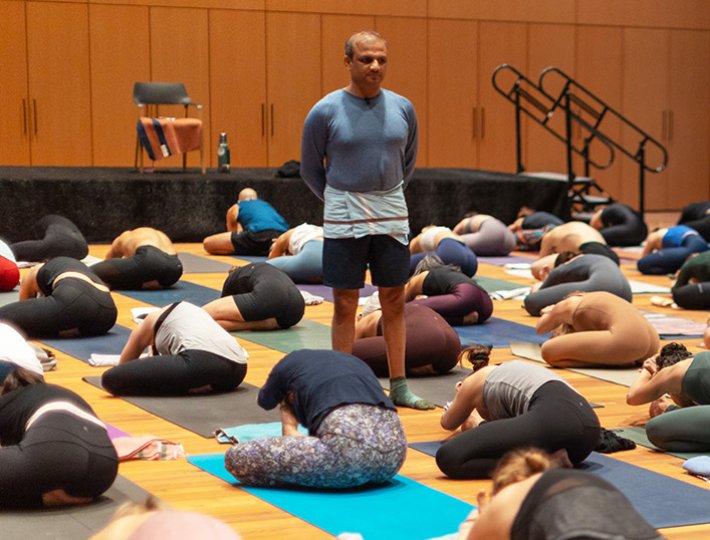What have you done for your workout lately? It certainly does a lot for you, but have you ever thought about what you are giving to your workout?
When it comes to exercise, we often focus on what we can get out of it: physical changes, improved health, better performance, and the good feeling afterward. While these are all great things, hinging your ambitions and personal satisfaction on these external factors will keep you motivated only for a short while. (How often have we set lofty resolutions in January, enjoying the immediate results, but then petering out when it starts to get boring?) Maybe it’s time to flip the script. Before you expect anything from your workout, first you must step up to the plate with a positive outlook about the activity. Often this means developing internal fitness motivation. When you do this, experts say you’ll be more likely to stick with the routine, and you’ll also be more likely to experience many of the benefits you desire.
Professional athletes are masters of being internally motivated, says Vernon Williams, M.D., a sports neurologist and medical director of the Kerlan-Jobe Center for Sports Neurology in Los Angeles. But you don’t have to be training for the Olympics to master their mindset. “Athletes go into a workout with a sense of purpose, focusing on what they need to do rather than just the goal they want to accomplish,” says Williams. He points out that instead of seeing exercise as something they “have to” do, most of them show up day after day because it’s something they want to do. Because it’s a passion as much as a job, they’re willing to put more effort into their workouts, he adds.
It’s not enough to just tell yourself through gritted teeth, “You will do this treadmill run and you will like it.” Much is said about forcing yourself to exercise when you don’t want to—whole Pinterest boards and Tumblr accounts are dedicated to this idea—but Williams says that everyone responds differently to exercise, and this tactic simply won’t work for some. Rather, he says a big part of an athlete’s positivity is that she has found something she loves to do. It sounds so simple, but many people slog away doing exercises they find boring or painful because they think that’s what they “should” be doing. Don’t like to run? Don’t run. There are so many different ways to be active, from hula-hoop to dodgeball to aerial yoga, there is no reason not to have fun with your workout.
But what if you’re not naturally a water bottle half-full type? What if your first instinct is to hate everything? Don’t worry, says Michael Mantell, Ph.D., senior fitness consultant for behavioral sciences for the American Council on Exercise and author of Don’t Sweat the Small Stuff: P.S. It’s All Small Stuff. “Research demonstrates that 50 percent of a person’s outlook is inborn. Another 10 percent appears to be attributed to life circumstances.” That means 40 percent of your happiness is directly under your control.
One way to find what you love is to look back to your past. “So many people define themselves as ‘sick’ or ‘fat’ or ‘out of shape,’ so I ask them to bring in a picture or memento from when they were doing something physical that they loved,” Williams says. “Once they look at that ballet picture or basketball trophy they can say, ‘Hey, that’s me! I’m still that person!'”
Mantell recommends you kick the negative self-talk—the “I can’t,” “I’ll look stupid,” and “I don’t know how to do this”—and replace it with positive language. A simple “I’ll try” can go a long way. And it’s worth the effort, because the latest research indicates that happier people get more out of their healthy efforts.
For example, people with a positive attitude are more likely to exercise in the first place, to stick with a fitness program, to bounce back from a setback, and to do other healthy activities like eating a healthful diet and meditating. One study found that heart disease patients who exercised and had positive attitudes were 42 percent less likely to die of all causes during a five-year follow-up period, compared to patients who were negative and didn’t exercise. (And not dying makes you at least 97 percent happier, right?)
Researchers found that in addition to helping people exercise, a positive attitude also makes exercising easier. (And who wouldn’t want that?) People who go into their workouts with the intention of enjoying them recover from exercise faster, heal from injuries faster, have stronger hearts, and feel less pain when they work out. Exercise stresses the heart, but one study found that positive people’s heart rates returned to normal faster after a stressful event.
The one thing all of the research results have in common, however, is that while happy people are more likely to get those benefits, people who get those benefits are more likely to be happy! Practice bringing positivity to your workout, and eventually the happiness-exercise loop becomes self-reinforcing, leading to better health and fulfillment for life.









Comments (0)